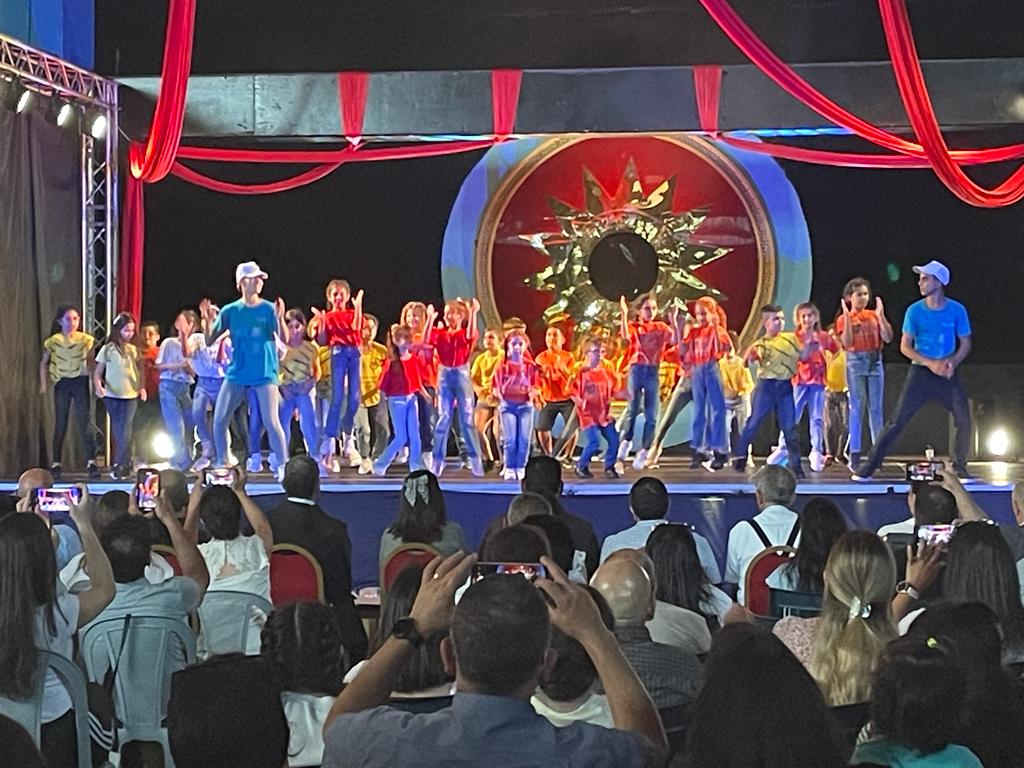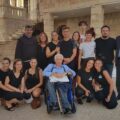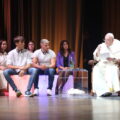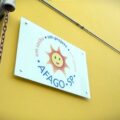
Workshop
When dance rhymes with unity and fraternity | Part 2
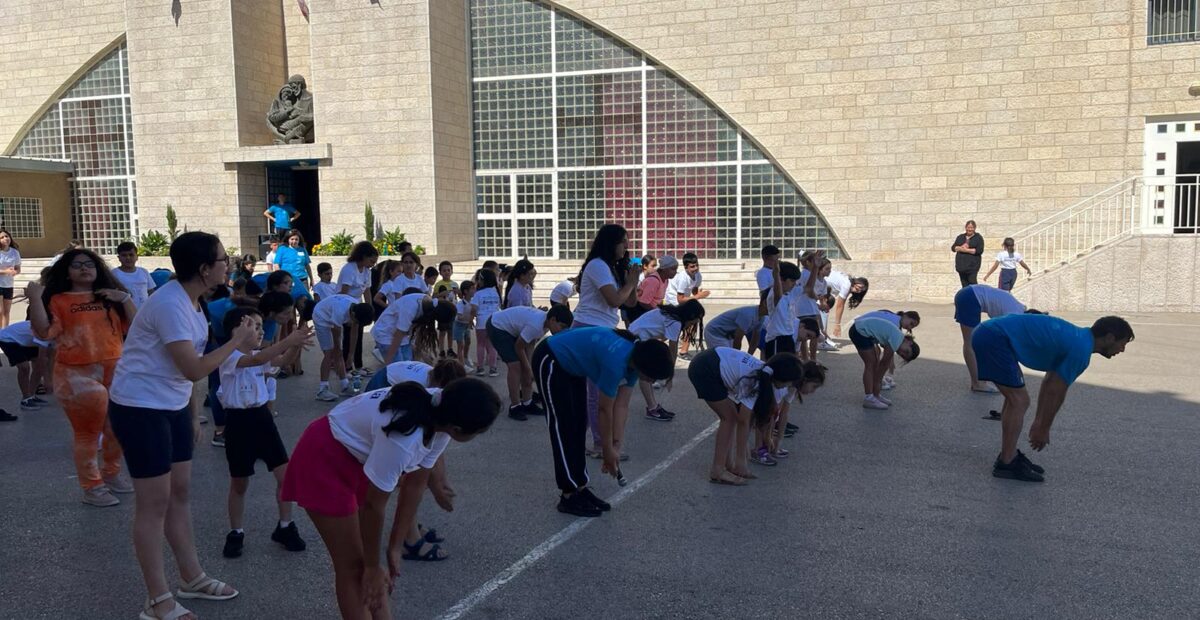
Meeting with Antonella Lombardo, founder of ADW (Academic Dance Workshop) of DanceLabArmonia and of the Armonia for Peace march. Tireless user of art to build fraternity, unity and peace.
Antonella Lombardo started studying dance since she was a child. She continued at the Dance Academy of Rome and followed courses in Paris, at the Sorbona de Cannes. She got married at the age of 25 years interrupting her ballerina carrier and dedicated herself to teaching. She built a center of extraordinary art in 1948, full of humanity, at Montecatini, in Tuscany. It’s called Academic Dance Workshop: the ADW, was the start of a great story. We met with her to hear about an adventure that started 40 years ago.
Our work was born to create a centre of encounter for the youth. To offer them a place to experiment art in its diverse disciplines, with positivity and encouragement. A school that since 40 years meets thousands of youth.
What did you tell him?
I spoke to him about the campus project with youth coming from various parts of the world, to take forward an idea of dance functional to unity between people. Returning home, they would have to take forward their experience of unity. It was a very big dream. I asked him about the possibility of bringing young Israelites and Palestinians to my school in Montecatini Terme, Italy. We know very well, now even more so, how difficult the reality is between these people. At that time, however, the situation was already quite heated (there had already been the second Intifada).
How did Father Ibrahim react?
He looked at me seriously and did not utter a word. I thought that my project did not interest him. I bid him goodbye and thought I had concluded nothing.
And instead?
After a week he called me and told me that he would have given the opportunity to 5 Israelites and 5 Palestinians to participate in our first International campus. Thus this adventure began and I remember that we had the Digos and the helicopter over the school. It was a very strong experience.
Other memories?
During the first week we became more aware of the hatred between Israelites and Palestinians. With Elisa we asked ourselves if it was wrong to work on this reality greater than us. We were almost desperate, but instead we discovered all the power of art: sweating together, these youth gradually discovered they had the same dreams and needs. They realized they could love each other and a friendship was born.
Something beautiful…
A beauty of relationships that spread to the other youth. There would be so many moments to speak about of that first Campus, but the most beautiful thing was the “miracle” of the meeting in the second week. The atmosphere of harmony and brotherhood.
Then what happened?
The experience continued over the years with other campuses, even though we are a droplet in the ocean of suffering. Returning to Jerusalem, nonetheless, we saw that these Israelites and Palestinians could embrace each other. This is what counts the most. Being able to change a mentality of mutual hatred.
How does one reach there?
Working with the youth, more inclined to change. We experimented this with the atmosphere of harmony created in the preparation of the show for the 800th anniversary of the meeting between St. Francis and Sultan Malek. Muslim and Catholic schools work together for an event held in Jerusalem and Marseille.
Does Father Ibrahim know about the results of your work?
During the first International Campus, in my school in Italy, Father Ibrahim Faltas came as a surprise, and was deeply impressed to see that between Israelites and Palestinians there was no difference on stage. The former had good schools, the latter did not, but we managed to eliminate any difference. Father Ibrahim invited us to hold art campuses also in Bethlehem and Jerusalem.
From there, the campus experience in the Middle East…
Exactly, in 2014. We were staying, as we are now, in the John Paul II campus in Bethlehem, gathering around 150 children from the refugee camps and the Palestinian territories. Another campus was being set up at the same time in Jerusalem, in the schools of the Holy Land, and another in Biet Hanina, in a school with 400 deaf-mute children: this is a frequent plague in that area, because with the presence of the wall between Bethlehem and Jerusalem, people marry each other and these situations arise.
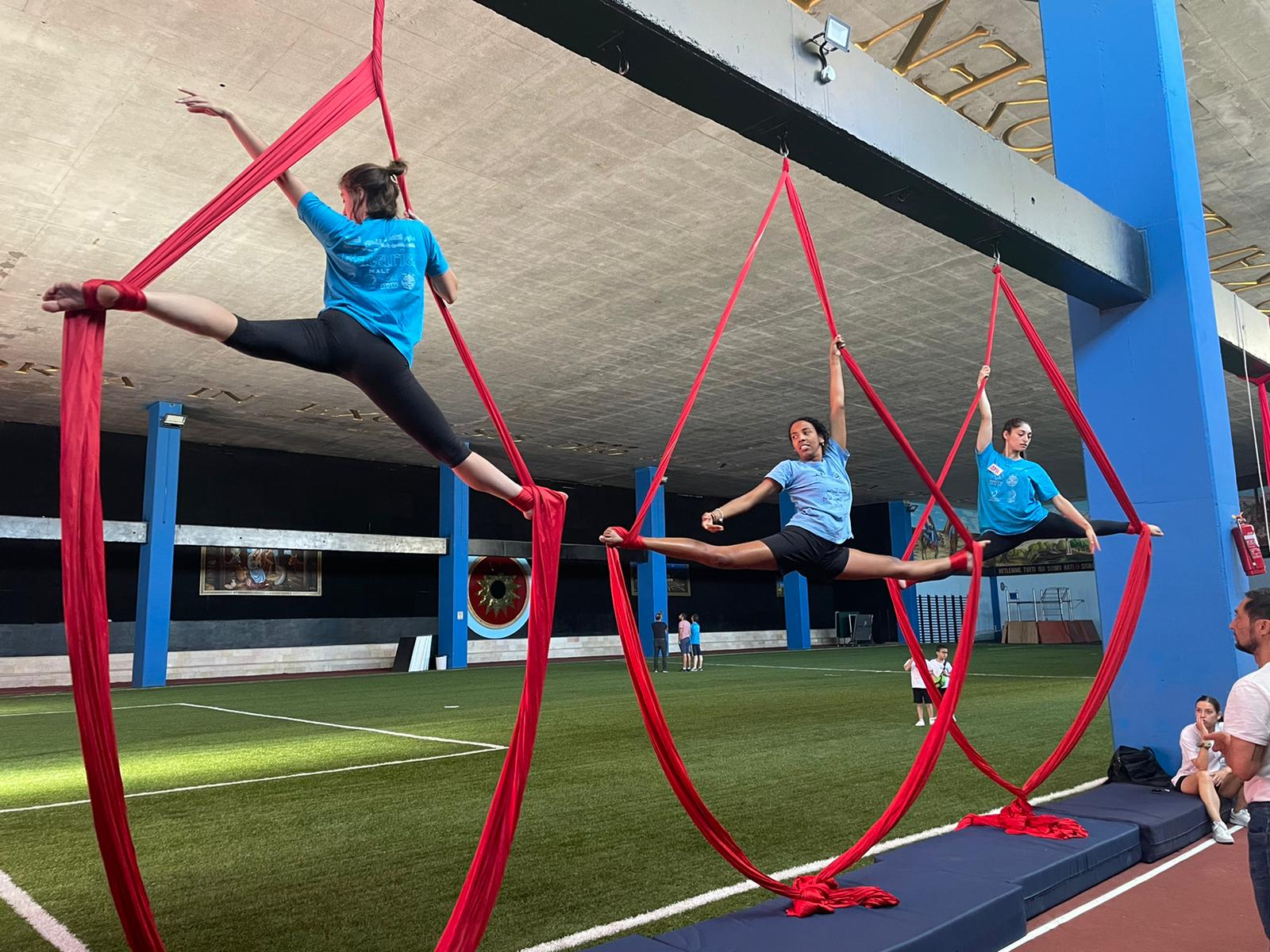
How are you’ll living this moment?
As of now the campuses are suspended and it is a catastrophe: messages speaking of a grave situation reach us. We keep in touch with all our youth through the internet. The help can only be verbal, of comfort, but we notice that is still important. It gives us and them the strength. And like this we keep alive our project, even though, as of now not physically.
Keep alive the hope…
That it “is a person”, as Massimo Toschi told us. I hope to soon be able to build a permanent school in Bethlehem. We already have the place and the project. It would be very important.
Do you’ll have help?
Father Ibrahim Faltas will give us the possibility to open it. This would mean offering continuity, constancy to the work of the youth. Art can free people, give hope and a sense of liberty also to who lives as a prisoner under an open sky.
This story speaks of fraternity and strength.
Universal fraternity is to create the highest unity between populations and people. Art is a superior language that breaks down cultural, religious and social barriers. And it creates profound harmony. The body given to us is an instrument that makes us discover ourselves different but united in one soul.
The youth give a great help in the construction of fraternity…
Our project is born from the hearts of the youth and thus has great strength. They are the first to believe in it. The youth of the Campus, loving dance, work together, create a brotherhood superior even to that of blood.
What are the next immediate stages of your work?
On 31st of May 2024 we will hold a show for schools in Florence where we will invite Father Ibrahim Faltas to speak about the situation in the Middle East. We will have various personalities and show videos compiled by the schools on the theme of Peace. Certainly the most emblematic ones from the Middle East or Latin America. We will talk about how so many children and youth, in different ways, participate in building peace.
You’ll live the same concepts in school…
For the youth in my school, it is not compulsory to be active in the association: membership must be a choice. In general, however, the best ones put their talents at the service of others, so that there is no protagonism, but that the end result is valid for everyone. Many times, at the end of a performance, they feel a greater emotion than if they had performed by themselves. Very often they have told me that they felt “as one” on stage. And those who are truly talented can still train as professionals.
There are also differently – abled children in school.
Generally they compose the choreography with the others. We notice how this does not take anything away from anyone. Instead it adds up. Generally, we work to give the possibility to each one of them to express themselves in the best way possible and to bridge each other’s gaps. This is our pedagogic method: the people do not work for themselves only, but for others. This enhances the skill: you get better by giving, and when the youth realize this they become enthusiastic.
Art helps in many ways…
In our school there is a girl affected by Ataxia: she does not balance herself. When she arrived, as a child, she was held while walking. I am not doctor and initially I did not feel encouraged to teach her. Her mother insisted instead and we started with dance propaedeutics: harmonic psychomotricity exercises as well as a lot of love. I remember her happiness when she started moving to the beat of the music. Now she is 18 years old, she walks alone and composes choreographies with the others. A miracle of love. When in performances the audience perceives this, thunderous applause follow.
Applauses that are good for you too?
They give us the strength because these 18 years of life of the association were also quite tough: in the International Campuses it is all free of charge, but to organize them requires a lot of money and being able to find this is not easy. Despite this, we believe in gratuitousness as an initial incentive for many youth who then remain fascinated by the project. There are professionals who have experienced our campus and write to me that they are taking forward the idea of possible harmony in their company.
